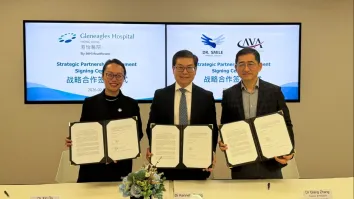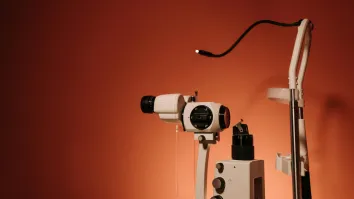
Digital transformation improves the quality of Columbia Asia Hospitals
Providing healthcare services that are closely aligned with the needs and preferences of the community is key to the success of this hospital chain in their expansion.
Columbia Asia Hospital Indonesia saw an increasing demand for accessible healthcare and more patient engagement.
To meet these demands, this international hospital chain is taking digital transformation more seriously than other hospital chains, by creating apps for patients and hospital staff, and providing healthcare services right at their fingertips.
Speaking to Healthcare Asia, CEO Naveen Kumar Mantha underlined that Columbia Asia Hospital understands that people want to be more actively involved in their healthcare journey.
"Patient convenience and connection has always been our top priority, and our ultimate goal is to make the patient's healthcare journey as simple and efficient as possible," said Naveen in an exclusive interview.
By following this principle, he believes the hospital can "ensure that patients continue to seek our care, and doctors can provide the best possible service."
"We are responding to the trends of quality, accessibility and convenience by investing in the best healthcare experience and expanding our network," he added about their digital transformation goals.
Embracing digitalization
Over the years, Columbia Asia Hospital has developed a digital hospital ecosystem that includes various apps for patients and doctors. This transformation is considered inevitable, given that convenience and connectivity are prioritized by patients.
The hospital has released various apps, such as the patient app, which provides a convenient platform for patients to access their medical records, schedule appointments, ensure easy access to treatment information, and make payments when accessing healthcare services.
Meanwhile, doctor apps are used to empower medical staff to improve patient care by providing real-time access to patient data, enabling more informed decision-making and faster response.
Patient engagement is also enhanced through a patient feedback app known as Cempia, where patients can provide their input.
"All this feedback is very important because we learn from them. If there is an issue, we will resolve it within the next 12 hours. We analyse the problem, and the responsible department will communicate back to the patient for evaluation and improvement," says Naveen.
"We want to bring a smoother and digitally connected patient journey across Columbia Asia Hospitals," he added.
In the future, Columbia Asia will increase the use of electronic medical records (EMR). He said the implementation of EMR has been longstanding in the hospital network.
"It can be said that Columbia Asia is almost 100% successful in adopting the EMR system," he said. This private hospital chain did not experience any significant difficulties in following the regulations of the Indonesian Ministry of Health, which has set a goal of implementing EMR in all hospitals by 2024.
By adopting an EMR system, Naveen said patients' medical records can be easily accessed by doctors in various locations. Currently, Columbia Asia is already exploring the possibility for EMR portability to benefit patients traveling from one region to another.
"Our focus going forward is not just adopting the latest software but how this evolving technology can improve our service to patients and meet their needs" he said.
In terms of data privacy, Columbia Asia's CEO assured that his organization takes this issue seriously by regularly conducting security assessments of equipment to monitor vulnerabilities to cyber-attacks.
"We invest in strong and robust infrastructure and use trusted platforms," he said.
Community-oriented
Naveen said that the patient-centricity attitude is strongly reflected in the establishment of a community-oriented hospital.
Initially, Columbia Asia Hospital focused on core medical programs such as internal medicine, pediatrics, obstetrics & gynecology, general surgery, and orthopedics.
However, with the advancement of medical science and medical technology and the increasing needs of the aging population, the hospital chain naturally felt the need to expand their medical programs to include cardiology, urology, and neurology.
"We strive to understand the needs and preferences of the community. Our services are customized, evolving with the growth and diversity of the community," Naveen told Healthcare Asia.
Columbia Asia targets middle- to upper-middle class patients, who are sometimes confused about choosing the right hospital. Therefore, Columbia Asia strives to provide a good and decent hospital with a well-designed building to provide comfort to patients.
"Our hospital is very clean, neat, cool and bright. When patients come, they won't bump into other people, or feel claustrophobic or feel confused about where to go. We tried to design our hospital by putting the main services as the main focus with supporting services such as laboratories, pharmacies and cafes in the vicinity well thought out," says Naveen.
In addition, the location of the hospital was also strategically chosen, close to the community it serves. "We aim to be the first choice for patients within a five-kilometer radius," he says.
International quality
In addition to the service quality aspect, Columbia Asia also maintains consistent quality standards of infrastructure and patient care through its network of hospitals present in three countries: Indonesia, Malaysia and Vietnam.
"Our presence in these three countries ensures patient confidence that we are able to maintain consistently," says Naveen. "We take pride in the standardized appearance of our buildings which are designed to provide a sense of comfort for patients."
The second aspect that ensures international standards at Columbia Asia Hospital is the hospital staff's adherence to SOPs and policies.
They are also audited periodically to ensure compliance with the latest local medical guidelines.
Plans for the future
Since its first establishment in Medan in 2009, Columbia Asia has continued to expand its facilities.
In Indonesia, this hospitals are spread across Medan, Jakarta and Semarang. This year, in September, the hospital network commissioned two new hospitals: one in Aksara, Medan and another in BSD, South Tangerang. This means two new additions to the expanding operations of the private hospital network.
The hospital's future plans also include the development of a larger hospital bed capacity. Columbia Asia Hospital currently has a total of 856 beds.
"We plan to provide more than 1,000 beds by 2025, as well as expand facilities and services in several hospitals to meet the growing health needs of the community," said Naveen.
Development of hospital facilities is also being carried out in Semarang and Pulomas, with a focus on improving Center of Excellence (COE) services, especially in Semarang which will focus on Radiotherapy.
Meanwhile, Columbia Asia Hospital in Medan will increase its bed capacity to better serve the growing healthcare demand in North Sumatra.
In addition to this expansion Aksara Medan is designed to cater to BPJS (The state-owned healthcare and social security agency) patients, ensuring accessibility and quality of care for a wider segment of the community.
Columbia Asia BSD Hospital in South Tangerang is also preparing for significant upgrades including building upgrades and service relaunches.
"Columbia Asia Hospital is committed to continuous growth and innovation to meet the evolving healthcare needs of its community, and these expansions and upgrades are a testament to that commitment," said Naveen.

















 Advertise
Advertise





